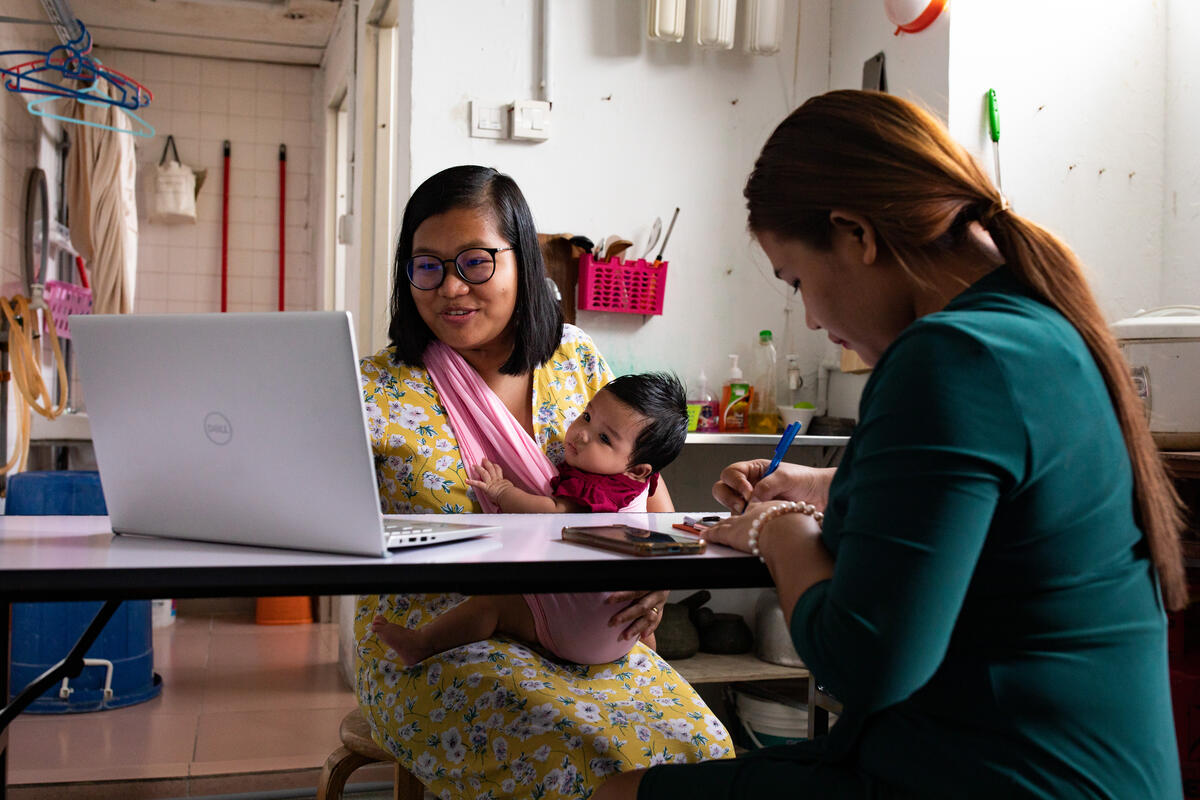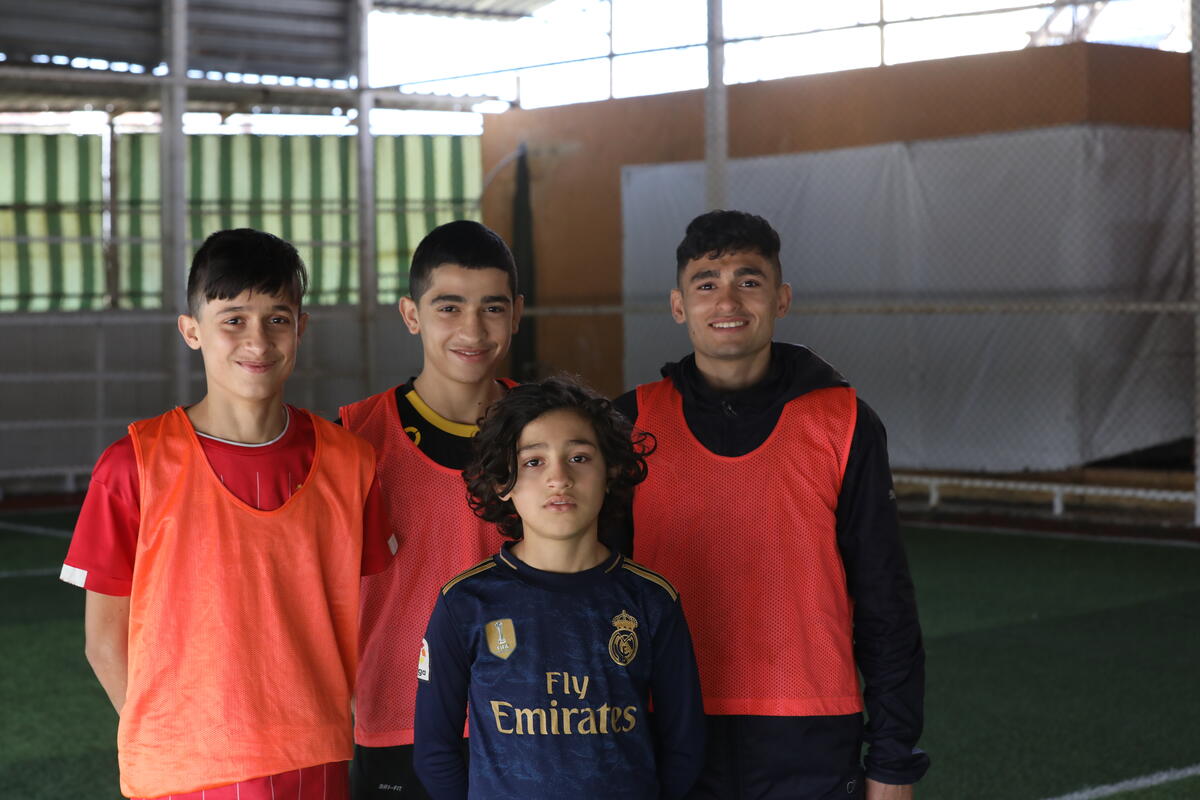Theatre raises health awareness and strengthens bonds in Rio
Theatre raises health awareness and strengthens bonds in Rio

RIO DE JANEIRO, Brazil, November 26 (UNHCR) - A line from Shakespeare's "Hamlet" came to mind last week in Rio de Janeiro during a theatrical performance by Angolan refugees and migrants with Brazilian actors.
"The play's the thing in which I'll catch the conscience of the king," says the tragic, brooding Danish prince. But in Rio, the play was the thing in which the cast caught the conscience of the audience - and each other - about serious health issues that affect the lives of migrants, refugees and locals.
"Prevention is the Solution" was staged last Wednesday in the city's poverty-stricken Vila do João district as part of an awareness campaign on HIV/AIDS and reproductive health being organized as a special project of High Commissioner António Guterres. The run-down area is home to a community of several hundred Angolan refugees and migrants.
The first-night audience comprised young people from the district. UNHCR and its local non-governmental organization partner, Ação Comunitária do Brasil (ACB), are confident that their enthusiastic reception will be repeated during coming performances at seven state schools in Vila do João and surrounding communities. The next show will be this Saturday.
The UNHCR campaign aims above all at strengthening the links between refugees, migrants and Brazilians by bringing actors from both communities together and by jointly spreading awareness about vital sexual health issues, especially reproductive health, HIV/AIDS, sexually transmitted diseases and safe sex. These are far more of an issue in deprived shantytown areas such as Vila do João than in more affluent areas of the seaside metropolis.
"It is a fantastic opportunity to make new friends, locals and Angolans, and I am learning a lot about these important issues," said cast member Domingos Manuel da Silva, a 27-year-old Angolan refugee who arrived in Brazil 10 years ago to escape civil war. "We are [also] helping other young people understand how to enjoy their youth without harming themselves," added the journalism student.
Glauco Gonçalves, ACB's coordinator in Vila do João, says the drama project has already had a very positive effect in the deprived area. "We are breaking barriers and prejudices about these issues. They are young people from different nationalities who are passing on the messages, helping their own community."
Gonçalves also noted that the project was helping to break down social barriers between the communities. "The Angolans are beginning to feel part of the community," he said. "Now, young Angolan refugees and migrants and Brazilians have the opportunity to be closer."
Rodrigo Cardozo, the Brazilian director of the play, agreed. "During the short time we have had to work on this, I have been able to discuss daily issues with the actors and analyze the differences between these two cultures, including customs, food and music, as well as their similarities," he said.
Aside from the drama performances, UNHCR and ACB will distribute awareness material, including pamphlets and videos. Some 4,000 condoms will be handed out for free at a health centre in Vila do João.
Brazil is home to around 3,800 refugees from more than 70 countries, with Angolans representing the largest group. There are almost 1,700 Angolan refugees in the country, most of them living in São Paulo and Rio de Janeiro. They fled to Brazil in the late 1980s and early 1990s to escape the civil war in Angola.
By Valéria Graziano in Rio de Janeiro, Brazil








